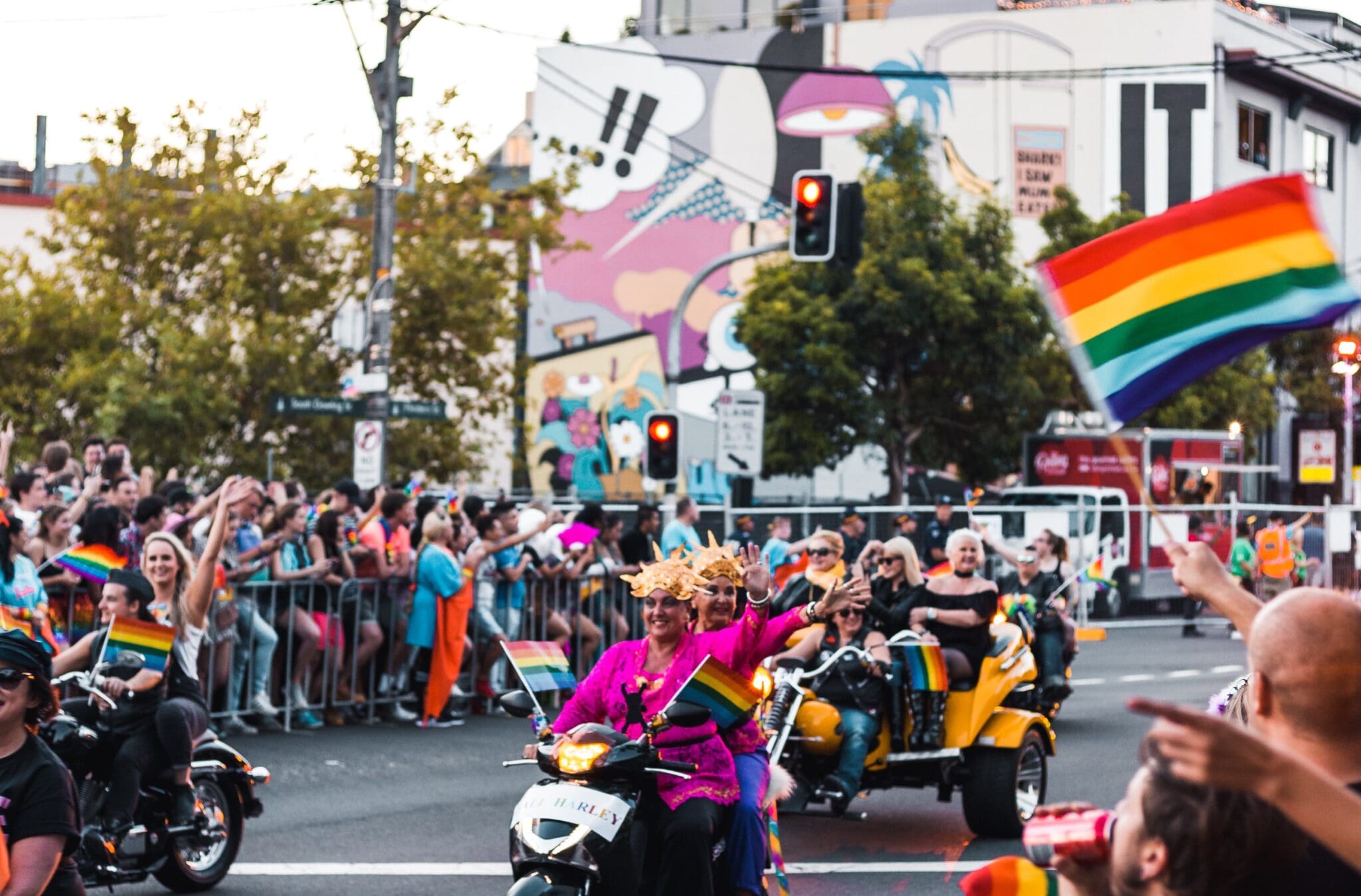Mardi Gras 2022 has arrived: marching around the corner in a crashing wave of colour and confetti, the music of queer pride reverberating throughout Sydney. It is a timely spectacle of joy and defiance for the LGBTQIA+ community, following closely in the wake of debate around the Morrison Government’s Religious Discrimination Bill. Yet, amidst this ‘loud and proud’ noise of celebration, I find myself wondering at the place of my own quiet declaration of queerness.
For myself, quietness in my identity is a matter of comfort rather than necessity. I am reserved in my expression of queerness, and my engagement with queer spaces, I admit (somewhat begrudgingly), does not go far beyond my bookshelf, my social media accounts or my Netflix subscription. Yet my passivity and the simplicity with which I embody my queerness is a privilege given not by my individual will or historic right, but by the blood, sweat and tears of those that came before me, and those that continue to fight for the comfort I now take for granted.
Thus, I wonder: What is the significance of my own quietness, belonging to a community that is, to this day, silenced? How has the media I consume relegated the act of embodying queerness into a rigid dichotomy of ‘loud’ and ‘silenced’? And is the ‘quietness’ of a person with a privileged voice complicit in the ‘silencing’ of the community?
I find in contemplating these questions I am drawn back to the event that prompted them to begin with: Mardi Gras, the ‘loudness’ I associate with it, and queer pride on the whole. I am in awe of the raucous, joyful and determined expression of community and identity— inundated with sequins and colour— yet, amongst it, I feel out of place. It would be easy for me to explain away my discomfort with a nod to the crowds, the noise, the partying (and a reminder of, quite literally, anything about my personality), but I feel to do so would be to reduce the celebration to frivolity. In truth, no matter how bound up in aesthetics or partying, the loudness of Mardi Gras marks an opposition to the forced silence that pervades queer lives, histories, and stories.
It is these stories of silence (thanks to the aforementioned Netflix subscription) that I am much more familiar with.
It seems, more often than not, that to watch a queer film is to invest yourself in a narrative ruled by silence. For a long time, Hollywood’s Production Code and social convention meant this was out of necessity, queer narratives trapped in that celluloid closet named subtext. But even today the overwhelming quietness remains. Many popular movies still cling to queer subtext— barricading the closet door— yet even those that step out into the literal are intent on subtlety, on the unspoken. Sapphic films, in particular, seem stuck on ‘quiet yearning’. Stuck on the voice of queer longing, muffled by the hand of context, who whispers: Born in the wrong time. The wrong place. The wrong family. Husband. Job. Such films present an aestheticised version of forced silence. The ‘quietness’ of queer yearning is where they find their tension, romance, and beauty.
If these are the stories I consume, is my own quietness to be expected? Maybe so. But the closet is not always built with celluloid.
In January of this year, Citipointe Christian College in Brisbane sent out an enrolment contract to parents. The enrolment contract included clauses that provided grounds for the expulsion of students who identify outside of their biological sex, and categorised “homosexual… [and] bisexual acts” as “sexual immorality” (for context: included under the same category were incest and paedophila). Queer students would be forced into silence. The school has since rescinded the contract, yet amongst recent debates surrounding the Religious Discrimination Bill, it highlights a dangerous reality for the LGBTQIA+ community: the closet can be built with paperwork as well.
At the start of this article I made a distinction between my quietness and the forced silence I watch on screens, hear in the news, read in history books. I said, my quietness in my identity is a matter of comfort rather than necessity. And that remains true, in part. Yet my questions remain unanswered. There is no clear reason for me to not join the colourful, sparkling noise of Mardi Gras. Yet I wonder how my quietness has crystallised over time, and if its catalyst looks not so different from that silence I fear.





